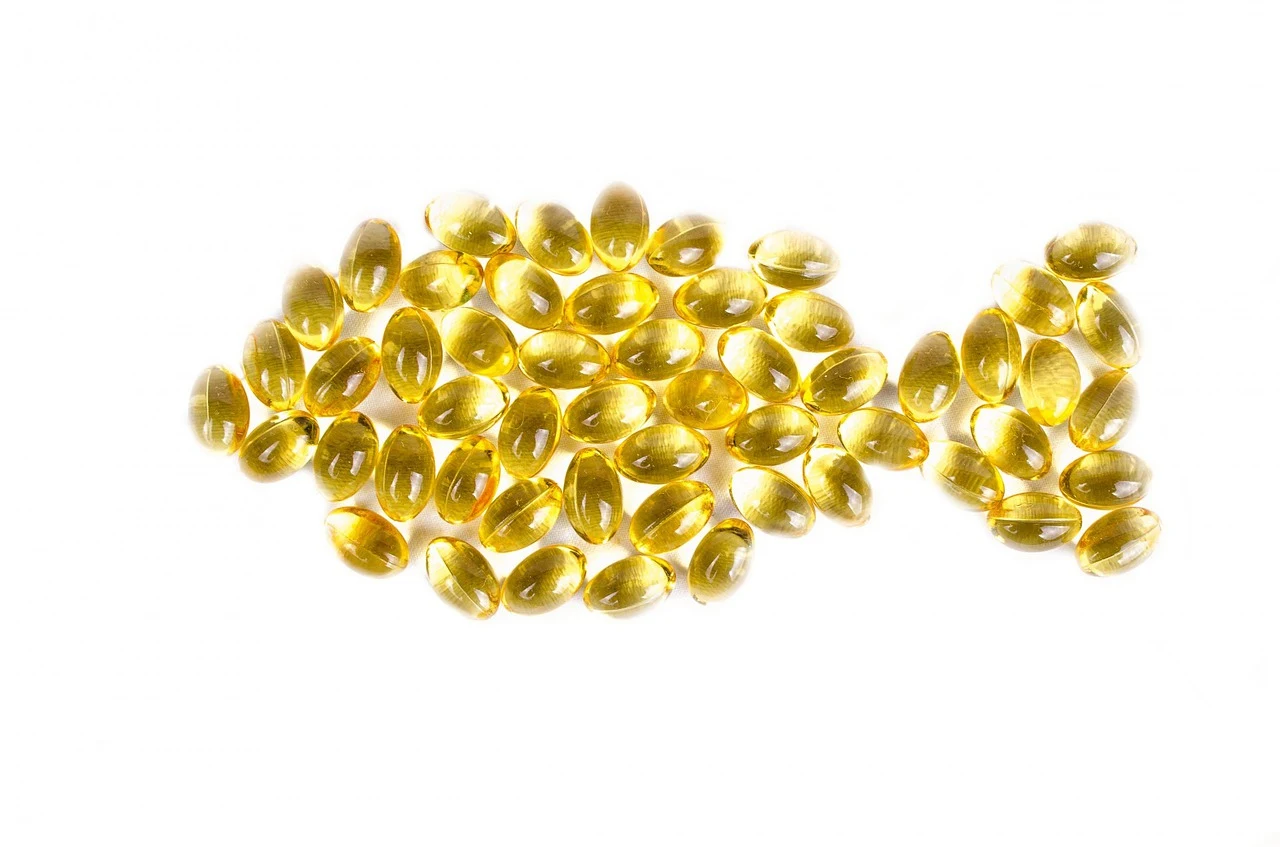Let’s get real for a second. All of us want our dogs to live a long and healthy life. We want them to preserve their quality of life even when they reach their senior years. But how many of us actually put an effort into making sure our dogs get all of their vitamins and other nutrients? Yes, I know. It can get confusing, and you don’t want to give anything that your vet didn’t recommend. However, one completely natural supplement, that could increase the overall well-being of your dog is fish oil. While fish oil may sound a bit gross to you, if you can get over the smell, it’s actually a great source of Omega-3 fatty acids.
Omega-3 fatty acids like Eicosapentaenoic acid (EPA) and Docosahexaenoic acid (DHA), which are found in fish oils, can help reduce chronic inflammation in your dog’s body. When a dog’s body is always inflamed, no matter what caused it or where it is, microscopic damage and oxidative stress happen to the cells. When this happens, there is a higher chance of getting sick. This can help your dog reduce symptoms of itchy skin, and arthritis, and it even supports brain health.

Fish oil can help dogs who suffer from itchy skin.
How can fish oil help my dog?
As we already explained, fish oil contains 2 different essential Omega-3 acids, EPA and DHA. These acids can be found in fatty fish like herring, salmon, mackerel, or sardines. At first, fish oils were recommended to treat canines with allergies. Nowadays it is used for numerous health conditions, including high cholesterol and arthritis, it is also great to support a healthy immune system.
Including fish oil as a part of your beloved dog’s nutritional routine has great health benefits that support your furry friend’s healthy skin and coat! The best part is that it’s also very good for your dog’s memory! It also supports normal joint and connective tissue, and can even help support heart health and kidney function!
While fish oil is no magic wand that will miraculously solve all of your dog’s health issues, it definitely can help their overall health and wellbeing. If your pup suffers from itchy skin and is staying up awake chewing on his paws, scratching, and biting, then fish oil could help him. As we already explained, this dietary supplement helps fight inflammation, which will soothe the itchiness your dog is experiencing.
Other health conditions that fish oil can help with include:
- Keeping chronic kidney disease under control
- Bringing down blood pressure
- Rheumatoid arthritis
- Cardiovascular disease
- Studies show that puppies with more DHA picked up skills faster and remembered them longer
- Bringing down blood triglyceride levels in the blood (This is important for dogs with pancreatitis, heart disease, and inflammatory bowel disease)
- Slowing down the growth and spread of some cancers, like lymphoma and breast tumors
- Increases the overall eye health
How to choose the best fish oil for your dog
Even though the list of benefits of fish oils seems long, there are some things to keep in mind. Your dog will get more out of them if he or she gets the right kind from a reliable source and in the right amount. It is important to know that fish oils are not a cure-all for any of the problems listed.
Plus, even though they are generally safe, there are some things that could go wrong with them. Because of these things, it’s important to talk to your pet’s vet so they can figure out if adding fish oils to your dog’s daily routine will help with any health problems your dog may have.
As with anything we or our pets eat, you want to make sure the source is trustworthy. Fish oils have become more popular over time for both human and animal health. So, companies have made a lot of claims about their products to get more people to buy them.
The FDA does not control fish oil supplements, which is a shame. This means that these supplements might not have as much DHA or EPA as they say on the label, and they might even have too much.
When deciding which fish oils to buy, you should look at a few important things:
Purity. Check the labels that say “Certification of Analysis” (CoA). Heavy metals and other pollutants can be in fish oils, especially if they come from waters that are dirty. Know where the fish for your supplement came from.
Freshness. It’s easy for fish oils to go bad. This is another reason why the CoA is important. The anisidine and peroxide values on the CoA help you figure out how fresh it is, since oxidation is a measure of freshness. They should have less than 5mEq/kg.
Potency. DHA and EPA must be in the product. If you want to help your dog’s skin problems, such as itching, you should use an oil with more EPA than DHA. If you want to support brain health, the amount of DHA should be higher than the amount of EPA. That’s because it has the most benefits for neurons.
Bioavailability. The best way for the body to use fish oil is in the form of natural triglycerides. Don’t use the synthetic form, which is sometimes sold as omega-3 fish oil concentrate or labeled as EE-based (ethyl-esters).
What source of fish oil should you choose?
As was already said, the benefits of fish oils depend on how they are made. When you buy Omega-3 fatty acids, you need to know if you are getting the natural triglyceride form or the man-made ethyl ester form (the manufactured one). On the label, the information should be easy to see.
Avoid using Omega-3 that has been made with ethyl ester. Even though the ethyl ester product is less expensive, you do not want it because it is not as good for your dog’s health as the natural product would be. It is less stable and is absorbed by the body at least 40% less well. This type of fish oil also doesn’t taste as good, which your pup definitely won’t appreciate. It has also been found that this mix makes dogs be more gassy and bloated. That is something no one wants to deal with. Instead, look for Omega-3 that is made from natural triglycerides.
How to store fish oil?
It’s important to keep light, heat, and air away from your fish oil supplements. Just like the fish oil capsules you buy for yourself, you should always keep your dog’s supplements in the fridge. Due to oxidation, fish oil supplements can quickly go bad, so you should check them from time to time and throw them away if they smell “off.” Instead of following what the package says, you should always ask your vet how much fish oil is best for your dog. Make sure that the dose you give your dog is right for its size, age, and weight.
Feeding your dog a natural diet can be hard. Because most commercial dog food has so many processed ingredients, your dog may not get all the nutrients he needs. Your dog may be able to get all of the nutrients it needs with the help of a fish oil supplement. Before giving your dog any supplements, you should always talk to your vet and only buy the best products.
Are there any side effects?
Most fish oils are completely safe. Side effects may include diarrhea, vomiting, slow wound healing, drowsiness, a fishy smell on the breath or skin, more itching, or an oily coat and skin flakes, especially if the dose is high. If your dog stops taking the supplement, these side effects should go away. Serious side effects include stomach pain that doesn’t go away, inflammation of the pancreas (pancreatitis), bleeding or bruising, or heavy metal toxicity, which causes dogs to lose their appetite, lose their balance or have seizures.
This supplement has a moderate effect that can last for a few days. However, if your pet has kidney or liver disease, it may last longer. That’s why you shouldn’t ever give your dog any dietary supplements without discussing them with your vet first. Vitamins, herbal treatments, and supplements can interact with each other and with both prescription and over-the-counter drugs. It is important to tell your vet about any medicines your pet is taking. This includes vitamins, supplements, and herbal treatments.
Pets that are allergic to fish oil obviously shouldn’t be given it. Fish oil should be used with care in pets that are already taking blood-clotting medicines or have blood-clotting problems, because it can make the effects of these medicines even stronger. It should only be given to pets with diabetes, diarrhea, or a history of pancreatitis with caution. Fish oil should be used with care in pets that are pregnant or are nursing. Vitamin A overdoses can happen if too much of the oil is taken.
Conclusion
In conclusion, yes, fish oil can help dogs with specific conditions. It helps with a number of diseases, lowers the risk of strokes, heart attacks, and it’s a better dietary source of DHA than most regular types of fish. But as there is no such thing as a perfect supplement, it comes with certain risk factors.
The risk factors of fatty fish oil are especially high for dogs who take other forms of prescription drugs or have chronic diseases. However, most clinical trials have shown that older adult dogs could benefit from the consumption of fish oil.
One important role is the quality of fish oil you give your dog. Cheap oils could contain heavy metals such as mercury. This could cause serious side effects and even poisoning. If you want your dog to reach old age in good health, make sure he is eating fish oil of high quality.
But like we already explained, no supplement will ever be able to magically erase all of your pup’s health troubles. In addition to that, not even the best fish oil will ever be able to replace regular vet visits, daily exercise, and a balanced and healthy diet. So before you start giving your dog any supplements, make sure his lifestyle is as healthy as it gets.


